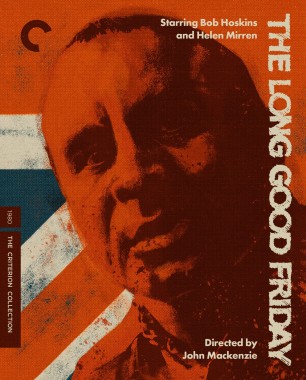The Long Good Friday: Corporate Governance

The Long Good Friday whisks audiences across late-1970s London, taking in everything from the Concorde landing at Heathrow Airport to the desolate undeveloped Docklands, from the chauffeur-driven cars at the Savoy Hotel to the beat-up jalopies south of the Thames. The film’s heart, though, is in the East End, and so are its roots. By 1964, when Barrie Keeffe joined the Stratford Express as a cub reporter, the area was a hotbed of organized crime. Its figureheads were the twins Ronnie and Reggie Kray, notorious gangsters who insinuated themselves into the celebrity set. Keeffe had witnessed too much of their carnage to be dazzled. At eighteen, he interviewed a man who had been nailed to a warehouse floor by the brothers over a territorial dispute: “Put it down as a do-it-yourself accident,” the man said, refusing to snitch even as he nursed his stigmata. When Keeffe came to write his first film, he put in a crucifixion scene, fittingly for a story set over Easter.
That script, which Keeffe pitched as “terrorism meets gangsterism,” pitted Harold Shand, a Krays-style East End gang lord, against the IRA. The project emerged from conversations with the producer Barry Hanson, who suggested Keeffe draw on his reporting background to create a thriller with the hard-nosed flavor of Performance. (James Fox, who played a hoodlum in that 1970 film, had sought Ronnie Kray’s counsel prior to making it.) Hanson brought in the filmmaker John Mackenzie, whose brisk style had earned him the nickname “Frenzy Mackenzie.” The director demanded a page-one rewrite and vetoed Keeffe’s original title: The Paddy Factor, a term used by the police to indicate Irish Republican involvement in a crime, gave the game away too soon.
Shot in 1979, The Long Good Friday foreshadowed the long bad premiership of Margaret Thatcher, which began in May of that year. It turned out to be the most prescient of British crime pictures. From this distance, its longevity (in 2024, Empire magazine named it the best British gangster movie of all time) now seems directly related to its sociopolitical dimension, which has insulated it from irrelevance. It is one aspect missing from those films of its ilk that have either been forgotten, such as Michael Apted’s The Squeeze (1977), or, like the glib capers of Guy Ritchie, deserve to be.







